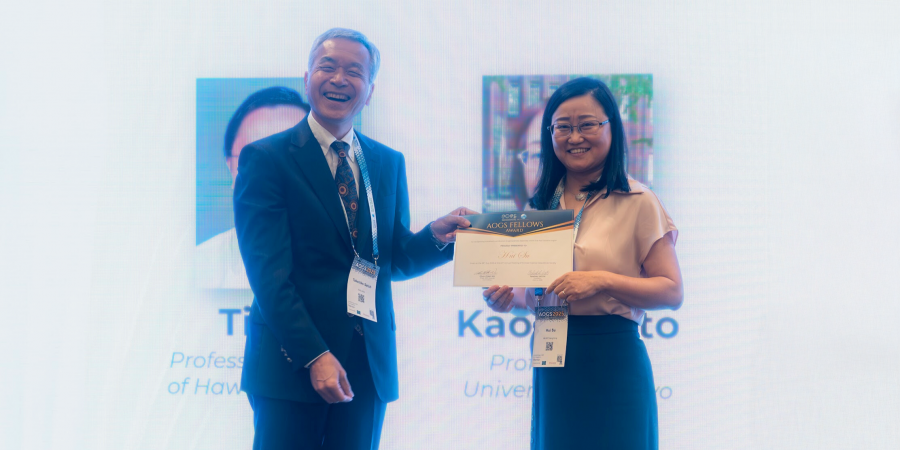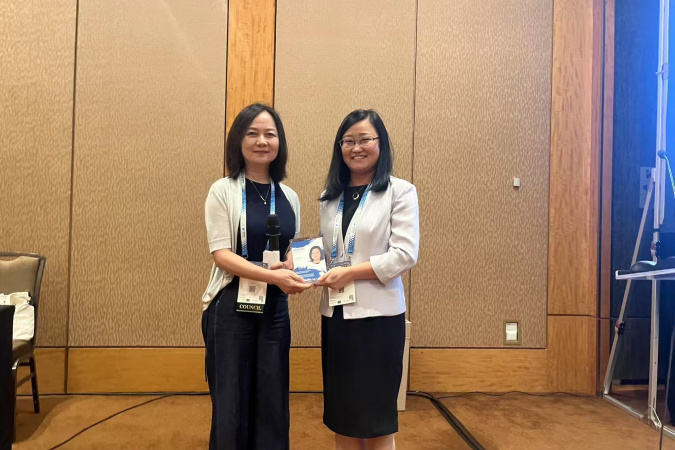Prof. SU Hui Elected as a Fellow of Asia Oceania Geosciences Society
Prof. SU Hui, Global STEM Professor and Chair Professor in the Department of Civil and Environmental Engineering, was elected as a Fellow of the Asia Oceania Geosciences Society (AOGS) in recognition of her sustained contribution to geosciences. Prof. Su received the distinguished honor at AOGS’ Annual General Meeting 2025, which was held in Singapore on July 28, 2025.
Established in 2003, the Asia Oceania Geosciences Society (AOGS) is a prominent regional scientific organization dedicated to promoting geophysical and geosciences research for the benefit of humanity particularly in the Asia and Oceania regions, with an overarching approach to global issues. The AOGS Fellowship is awarded to scientists who have consistently demonstrated excellence and leadership in the field, marking a significant milestone in their careers. This award underscores Prof. Su’s impactful research, innovation, and commitment to advancing geosciences on both regional and international stages.
As a newly inducted AOGS Fellow, Prof. Su was invited to deliver a Distinguished Lecture on Atmospheric Science, titled “Reconciling Conflicting Emergent Constraints of Climate Sensitivity Arising from Low Cloud Feedback” at the AOGS 22nd Annual Meeting on July 31, 2025. The lecture addressed the ongoing uncertainties in equilibrium climate sensitivity (ECS) influenced by cloud feedback. Prof. Su explored conflicting findings regarding the impacts of marine low clouds on ECS and analyzed variations in low cloud types to reconcile these discrepancies.
Related link:


